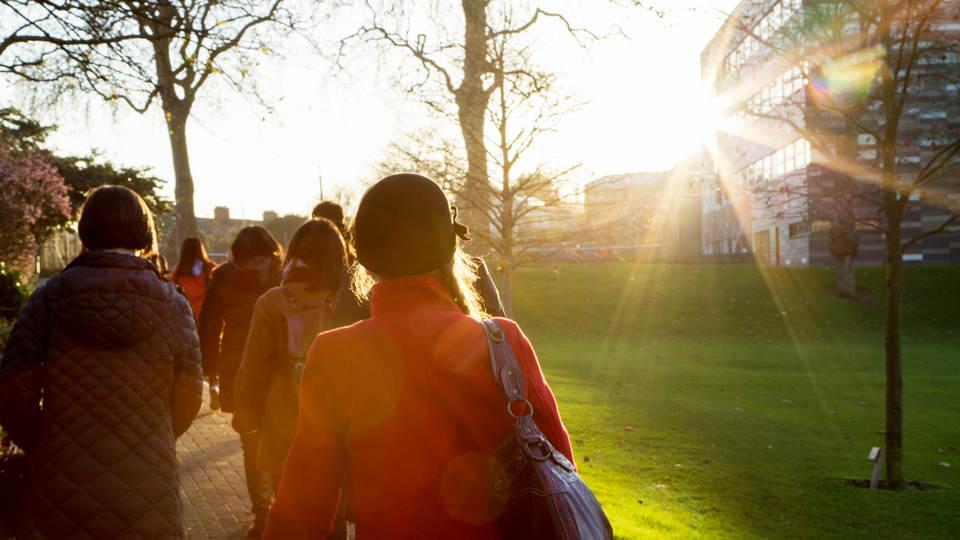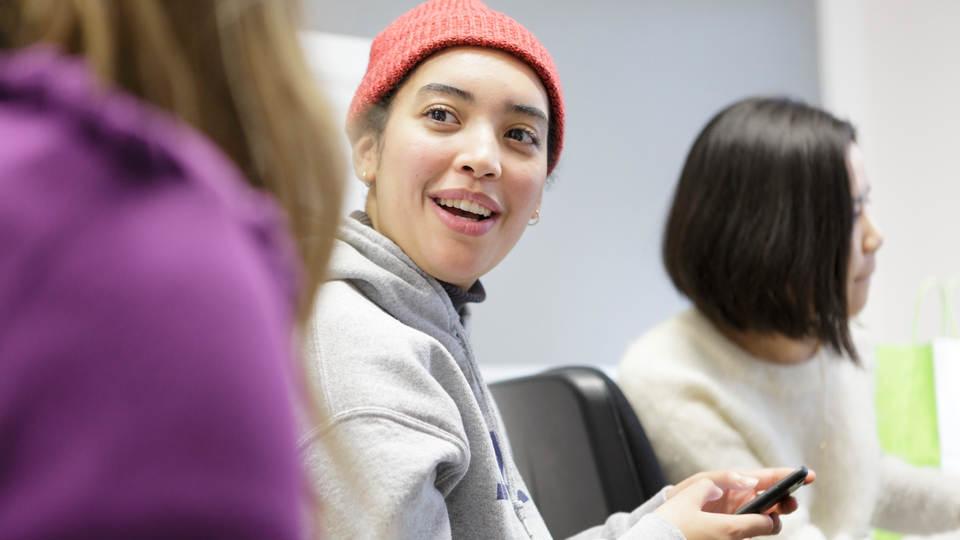Course information
Length
1 year full-time
Department
Art
Centre for Academic Language and Literacies
Course overview
This Pre-Masters programme is aimed at students who are considering undertaking an MA/MFA in Art or Curating but need a year to develop their practice as well as their written skills.
The Graduate Diploma in Art is an innovative twelve-month, studio-based programme designed for graduates who have experience in the creative professions, or those who have trained in other areas but wish to acquire skills within a fine art context. The programme offers a point of entry for students who intend to study at postgraduate level but do not possess the traditional academic qualifications, or those students who wish to further develop a body of work, or international students who seek to improve their English language.
We welcome diverse creative practices that may involve developing drawing, painting, sculpture, printmaking, installation, performance, art writing, curation, textiles, fashion, photography, sound, digital media and video, as well as poetry, spoken word, history of art and theory. All students are allocated a dedicated studio space and specialist Art Practice Areas provide support for a wide variety of processes that complement and extend traditional disciplines. You will have a personal tutor who will provide academic support and assistance in researching and considering the MA degree options for your future studies.
The student-centred approach of the Graduate Diploma in Art scaffolds you to work independently on top of scheduled sessions, where you will use a range of additional resources including the Art Practice Areas and the Goldsmiths Library.
The Graduate Diploma in Art offers new access routes to all MA/MFA programmes in the Department of Art at Goldsmiths:
Successful completion of the Graduate Diploma in Art will guarantee you entry into one of these four Goldsmiths postgraduate programmes. Throughout the year there is an opportunity to study alongside the postgraduate students and spend time within their studio, seminar and critical studies spaces. This process will integrate you into the studio-based postgraduate community in the Department of Art. The programme will help you develop a critical understanding of your own practice, and the contemporary artistic, academic, social, and political contexts in which that practice occurs.
The programme’s location on the main Goldsmiths campus in South East London, with proximity to some of the world’s leading artistic and scientific institutions, provides an opportunity to explore the city and use London as a resource. The Graduate Diploma in Art provides a rich environment for you to learn skills, acquire knowledge and build networks that will be essential to propelling your professional artistic practice through to MA/MFA and beyond.
Students are supported by the Programme Leader Elle Reynolds, Senior Tutor Dr. Joseph Noonan- Ganley and as well as academic visitors and artist practitioners in the field. We have an exciting external programme, which includes ongoing collaborations with curators, galleries and performance spaces. The programme teaches professional skills through visits, offsite exhibitions, talks and workshops led by practitioners that provide real-world insights into the kinds of innovations, negotiations and knowledge necessary to realising a successful practice. Established visiting artists and curators include - Tyler Coburn, Kirsten Cooke, Elsa James, Gary Farrelly, Onyeka Igwe, Emma Edmondson, Warren Harper, Beny Wagner, and Lu Williams. Studio practice is taught through an intensive programme of individual tutorials, group critiques and study visits. The Graduate Diploma in Art shares a specialised programme of critical studies lectures and seminars that include access to the MFA lecture programme.
Attend one of our Open Days or contact the department with the details below if you would like to discuss your application.
Image by Sakshi Chokhani and Kirsten Cooke.
Contact the department
If you have specific questions about the degree, contact Elle Reynolds or Dr Joseph Noonan-Ganley.

